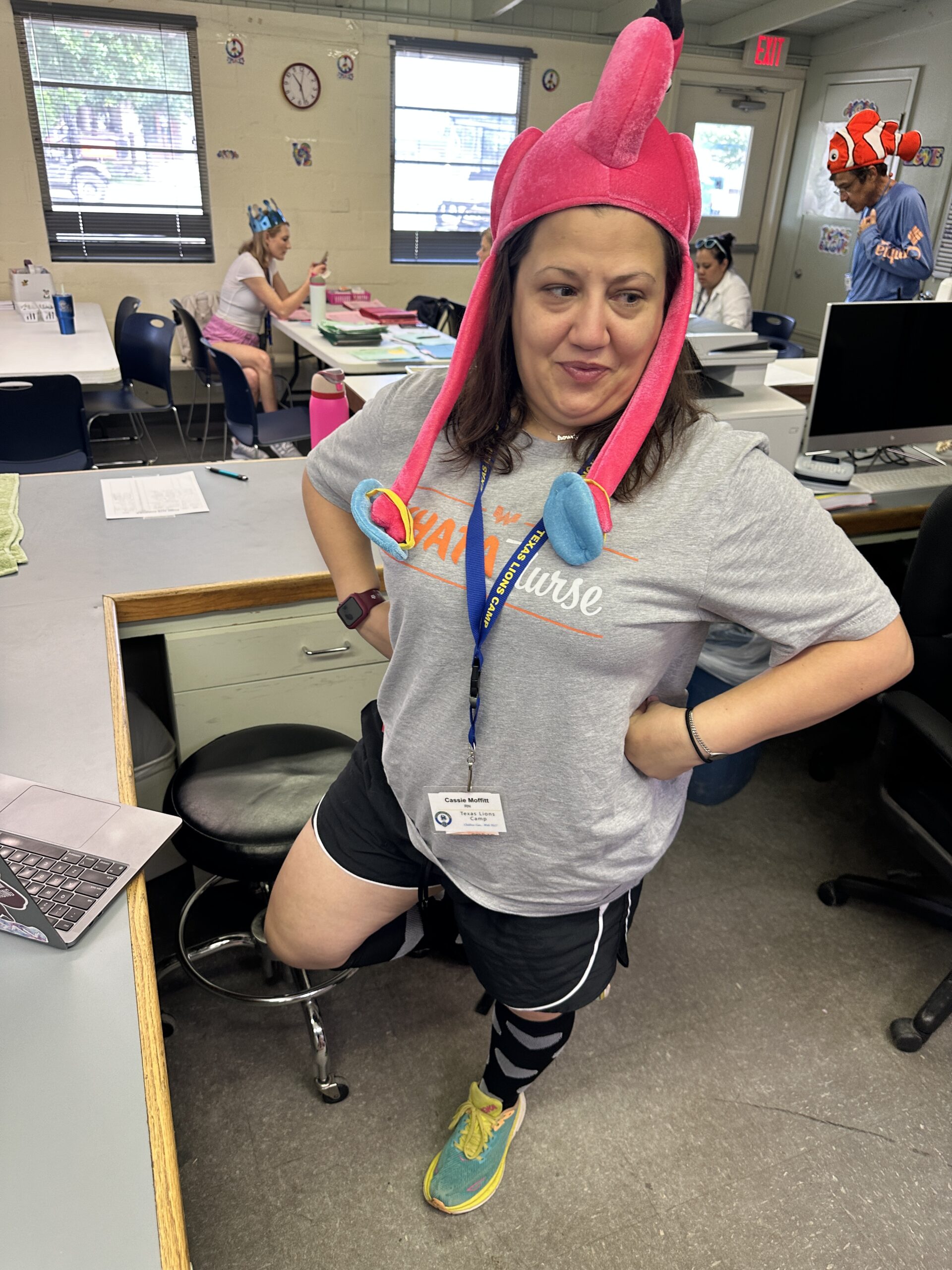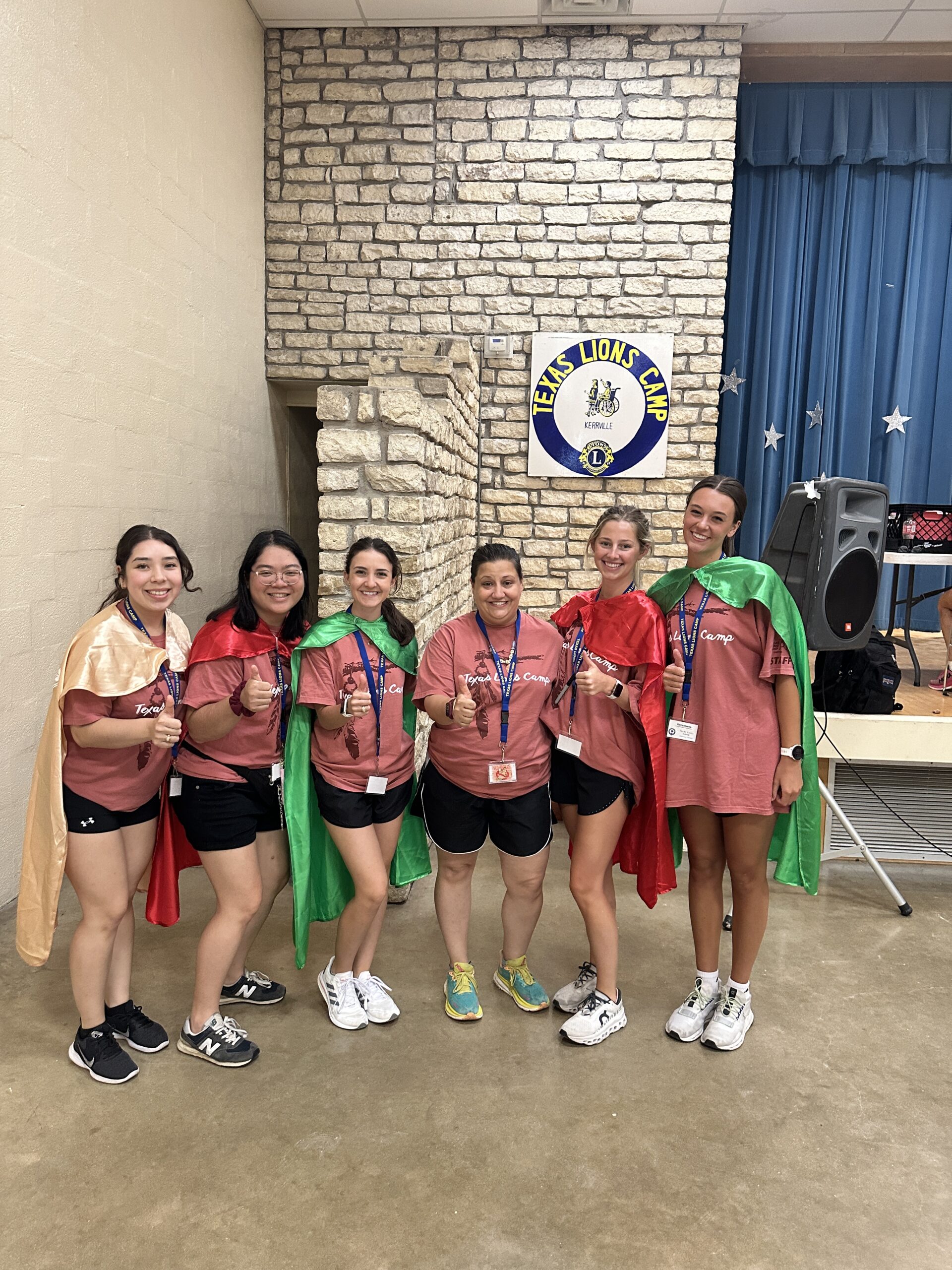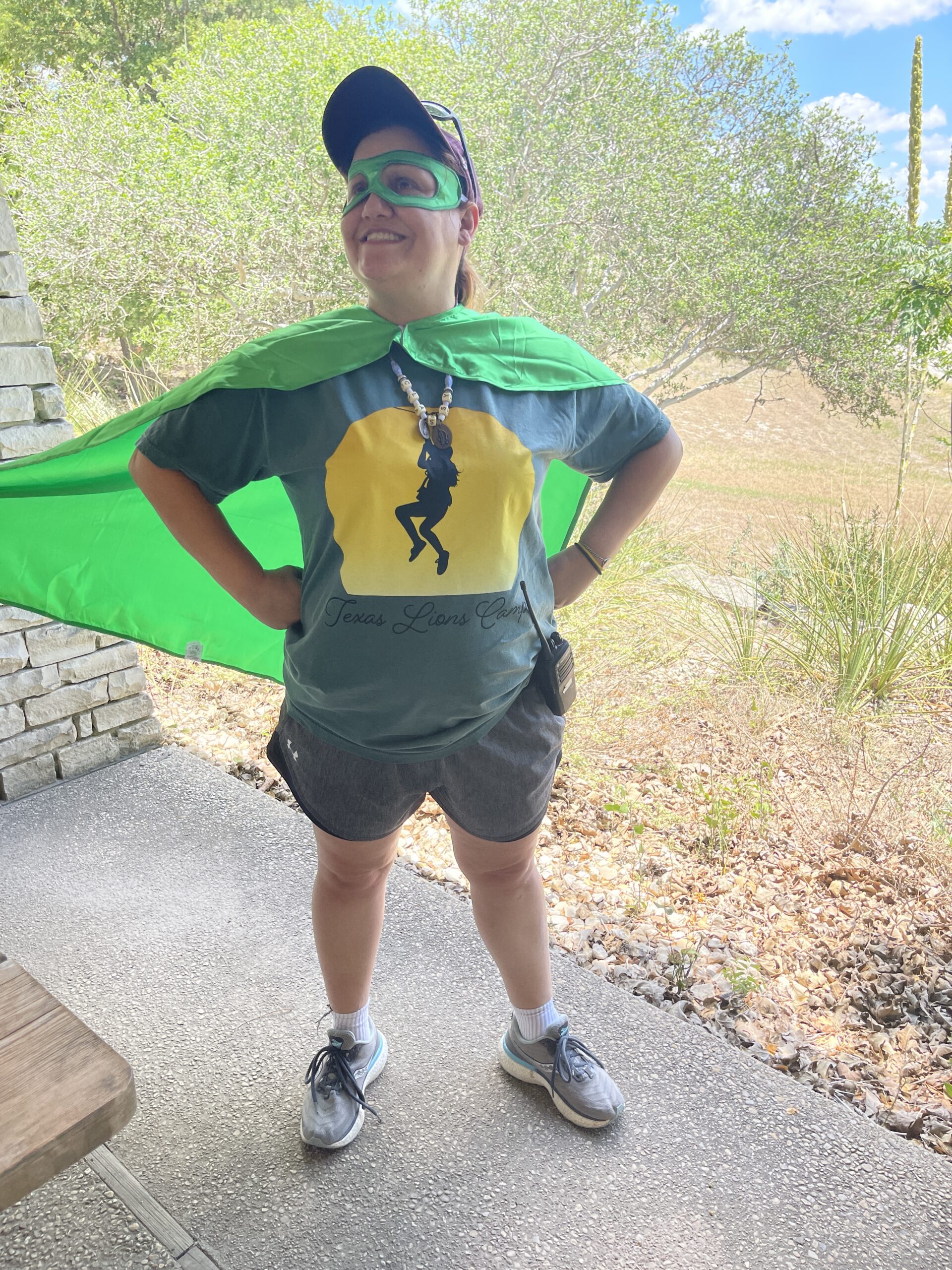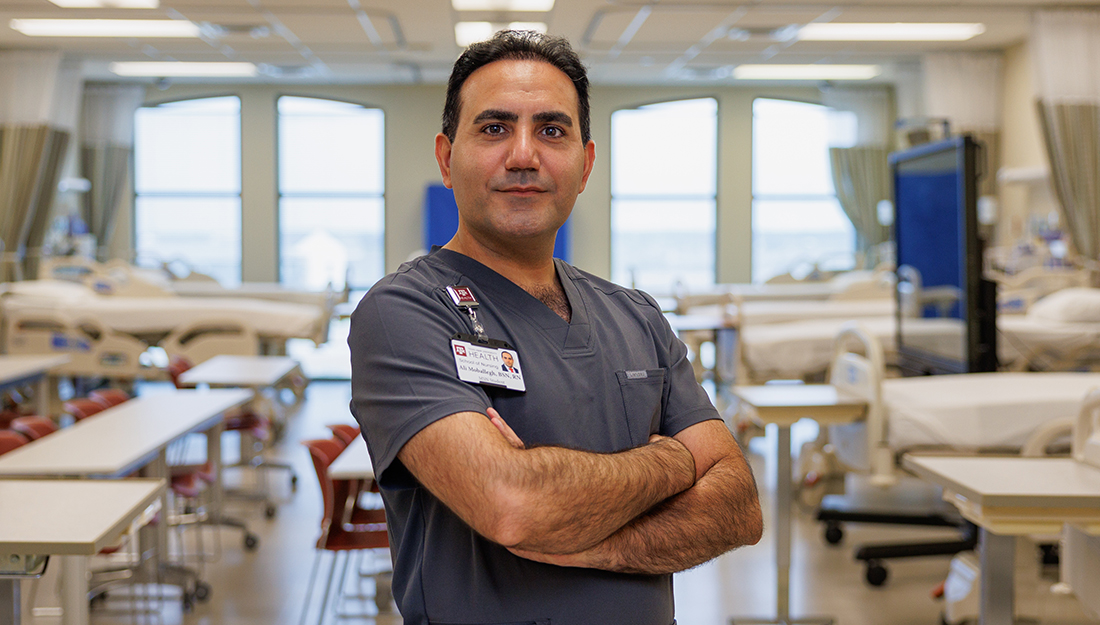- Maddie Spera
- Community, Community Impact, Nursing, Show on VR homepage
Texas A&M nursing professor dedicated to improving diabetes care
After her own lifelong struggle with the disease, Cassie Moffitt works to educate students on compassionate care for diabetes patients
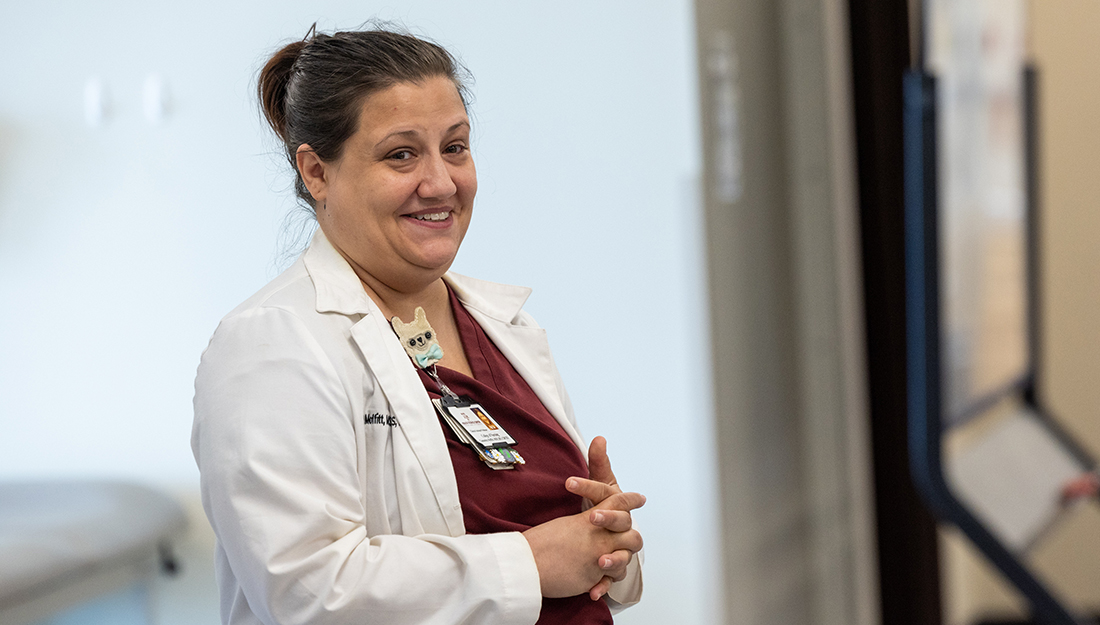
Cassandra Moffitt is a clinical assistant professor at the Texas A&M College of Nursing.
Cassie Moffitt, PhD-c, MSN, RN, CDCES, CNE, clinical assistant professor for the Texas A&M University College of Nursing, hasn’t known a life without diabetes. She started showing symptoms of type 1 diabetes at just 17 months old, and it was her grandfather, who had type 2, that recognized the warning signs. Moffitt began going backward in her milestones, like walking and talking, and her condition only worsened from there.
“My grandfather noticed that I was losing weight and was wetting my diaper, so he took me to my pediatrician, who insisted I was too young to have diabetes,” Moffitt said. “But when he checked my blood sugar, it was over 300, so he sent me to a hospital in Dallas. By the time I got there, it was over 1,400. I almost didn’t make it through that day.”
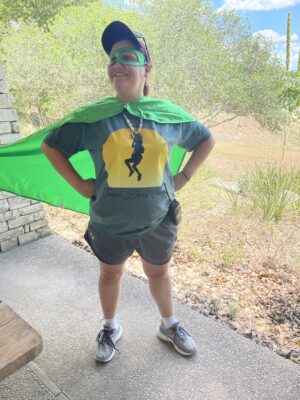
Being diagnosed with diabetes so early on sparked an interest and desire in Moffitt to learn as much about it as possible. Every summer, she attended Texas Lions Camp, a camp for children with cancer, disabilities and diabetes, where she learned she could make an entire career out of educating people about diabetes.
After completing nursing school at Texas Woman’s University, Moffitt accepted her first job at a trauma center in Dallas. Given that many patients who came into the intensive care unit had diabetes, Moffitt had the opportunity to hone her skills working specifically with patients battling the disease. Later, she went on to work the diabetes floor at Children’s Medical Center before landing a position as a diabetes educator at Dell Children’s in Austin.
In her current faculty role at the College of Nursing, Moffitt takes every opportunity to educate her students about diabetes and how best to care for patients with the disease, free of preconceived notions and associated stigmas.
“From my experience working with Aggie nurses, I feel confident that if anything were ever happening to me, they would know how to take care of me and even save my life,” Moffitt said. “They would know that they need to talk to me as a person with feelings, a person who is more than just diabetes.”
Another way Moffitt currently serves diabetes patients is as a counselor at Texas Lions, the diabetes camp she attended herself throughout her childhood. She’s been a counselor there for the past 12 summers and relishes the opportunity to educate children on diabetes technology. She says she’ll be forever grateful for the camp and can think of no better way to show it than to give back in the same way.
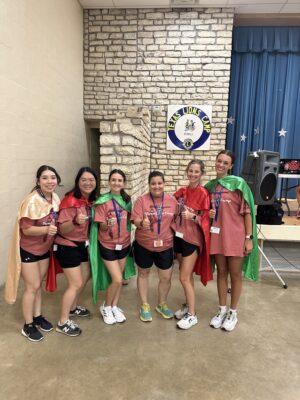
But advocating for effective and compassionate diabetes care goes beyond patient responsibility. Moffitt wants to ensure that care providers know not just how to treat diabetes patients’ immediate physical needs but also understand and address the disease at the core of symptoms.
“It’s very tiring to have a chronic medical condition where every move you make could affect whether or not you survive,” Moffitt said. “That’s why I love having the opportunity to stay at a patient’s side and show them I’m here with them.”
Moffit’s goal is simply to continue this important work. She is currently a PhD in nursing candidate at The University of Texas at Tyler and expects to graduate this spring.
Moffitt also accepted a new role this summer as the education lead for the Texas Coordinating Body of Diabetes Educators, where she will work to develop and improve education on the prevention and management of diabetes and related conditions.
“My work at its core is to make this disease less scary because it’s not going away anytime soon,” Moffitt said. “So let’s do the best with what we have and educate as much as possible.”
Media contact: media@tamu.edu
